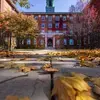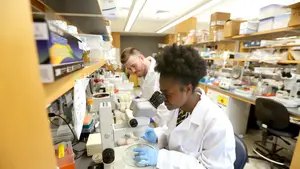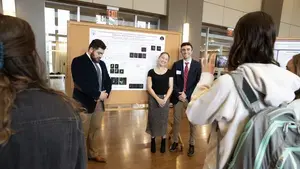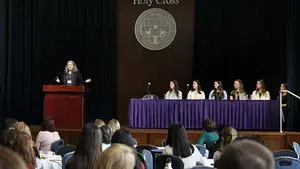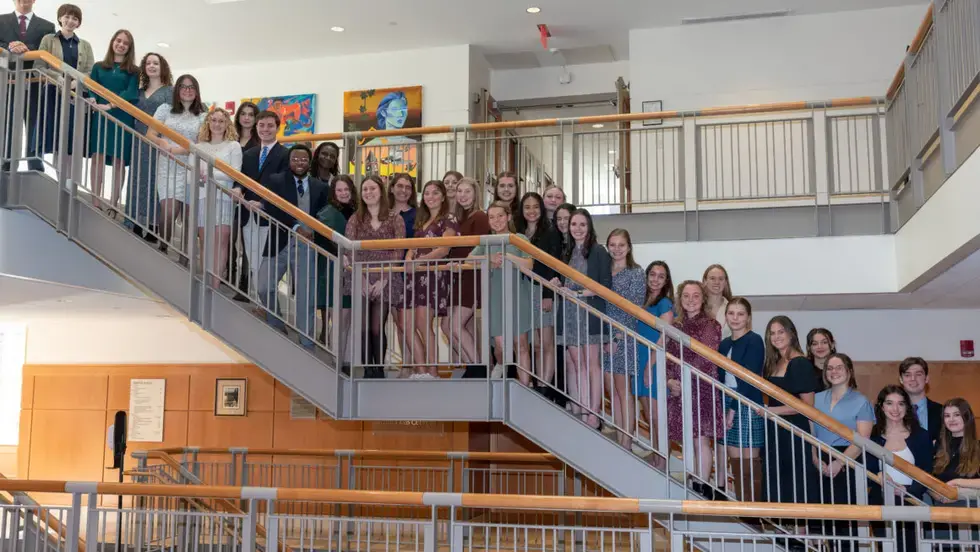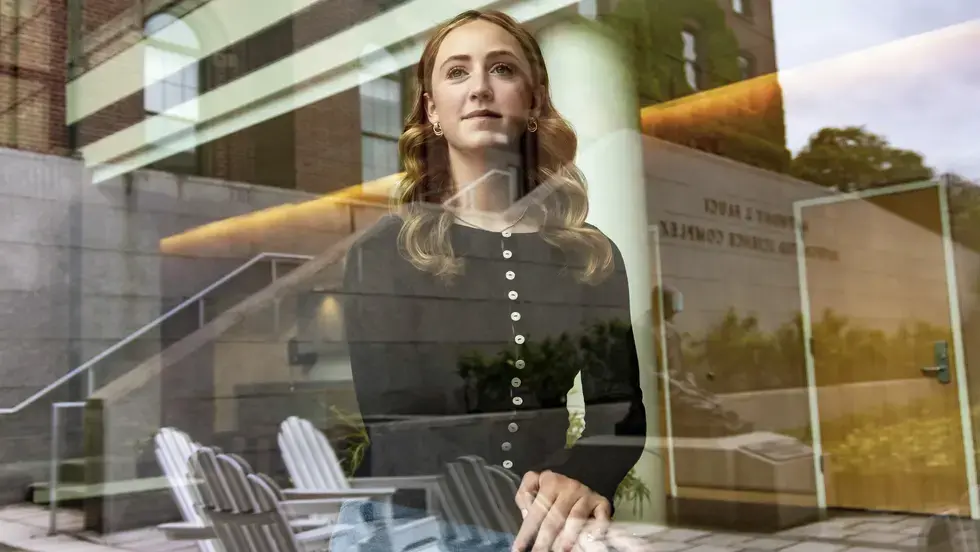
Neuroscience
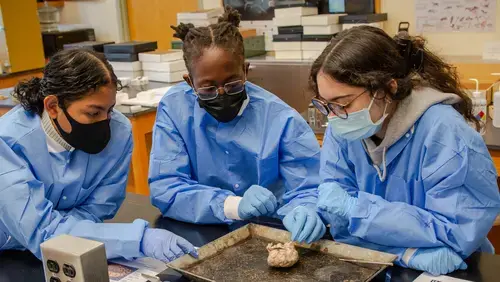
About the Program
The Holy Cross neuroscience program is a pioneer in developing undergraduate neuroscience courses and curricula. Distinctive features of the Holy Cross approach include opening new opportunities for students to explore science and technology; creating environments that allow students to grow and contribute their unique strengths to the learning process; and inviting students to explore the implications and applications of their learning.
The program has more than twenty Holy Cross faculty affiliates from six different departments (biology, chemistry, mathematics and computer science, philosophy, physics and psychology) who teach neuroscience-related courses and/or involve students in neuroscience-related research. The breadth, scope and opportunity for students to engage in in-depth inquiry are unusually large for an institution of our size. Students are provided with academic advising to tailor their program of study based on their individual goals.
Areas of Study
The curriculum includes courses from the natural and quantitative sciences (biology, chemistry, mathematics, physics), philosophy and psychology, with a set of core courses that draw connections between neuroscience and related disciplines. Neuroscience students discover fundamental principles of nervous system structure and function; the role of genes, molecules, cells and nervous systems in behavior and mental activity; and insights into human nature, health and disease. They also gain an appreciation of how concepts and methods from multiple disciplines are applied to understand complex problems.
Requirements
The Neuroscience Major includes 14 courses:
- 6 foundational STEM courses (in Biology, Chemistry or Computer Science, Mathematics, Physics and Statistics)
- 1 intermediate core course in neuroscience
- 1 historical or philosophical perspective course
- 2 electives
- 4 additional neuroscience courses, including one that is advanced
Across these 14 courses, at least 2 must be laboratory or project-based courses, at the intermediate or advanced levels. One semester of research for credit can be used to fulfill a major requirement.
The Neuroscience Minor includes 6 courses:
- 1 foundational STEM course (in Chemistry, Computer Science or Physics)
- 1 neural mechanism course
- 1 course addressing cellular/molecular approaches
- 2 courses in systems/behavioral approaches
- 1 advanced neuroscience course
To complete the minor, most students also take an introductory Biology course.
Meet Your Program Director

Opportunities
Research
Many neuroscience students are involved in research on and off campus. The Weiss Summer Research Program at Holy Cross allows students opportunities to perform research under the mentorship of Holy Cross faculty, along with weekly group meetings, seminars and journal clubs.
Conference Presentations
Holy Cross students present their research annually at regional and national neuroscience conferences and have had their work published in peer-reviewed journals along with their faculty mentors.
Guest Lectures
Several distinguished scholars are invited to campus every year to speak on a broad range of neuroscience-related topics and interact with students.
Outcomes
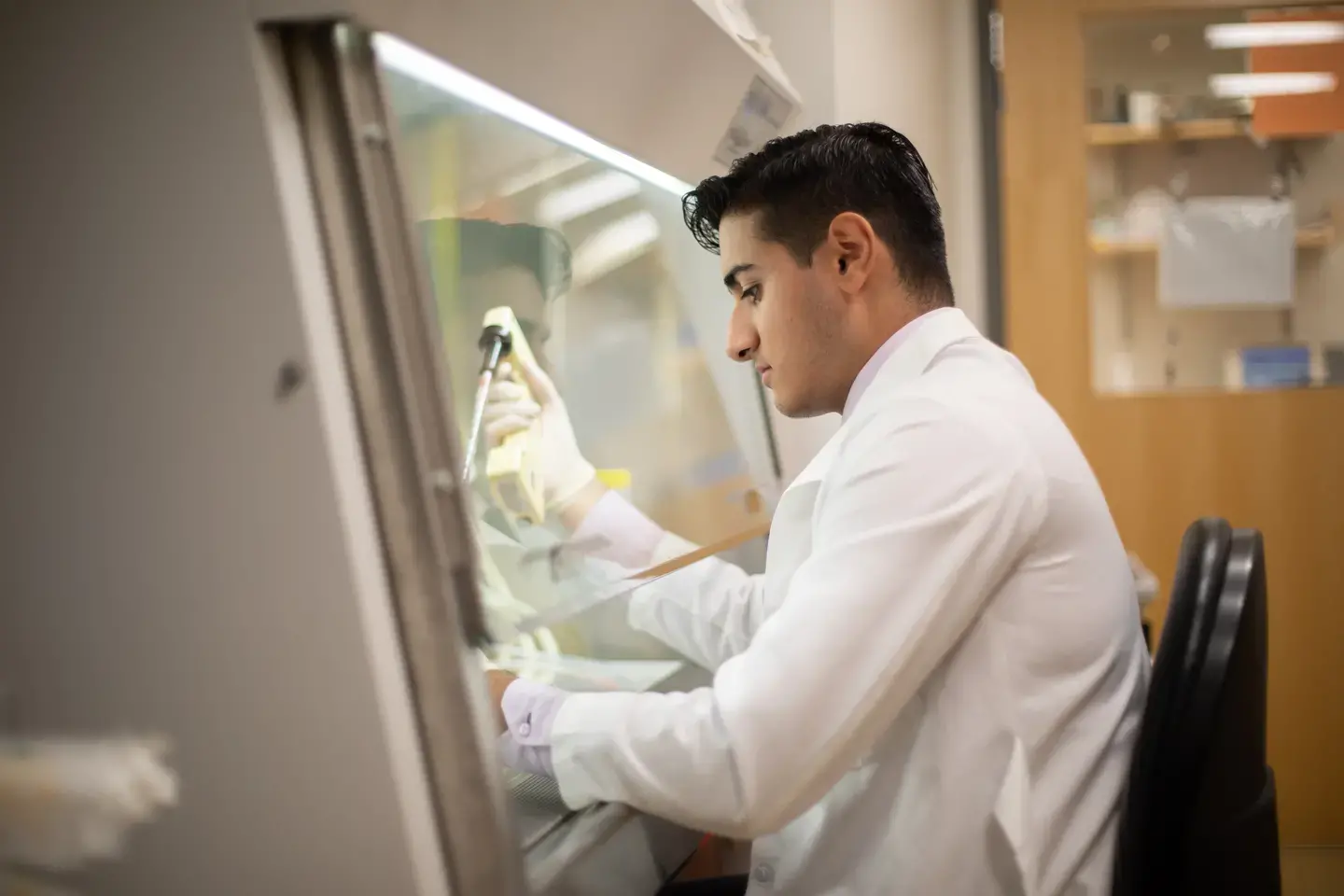
Recent Holy Cross neuroscience graduates have gone on to clinical and laboratory research assistantships; graduate study in medicine, health professions or neuroscience; as well as careers outside of science, in law and investment banking.
